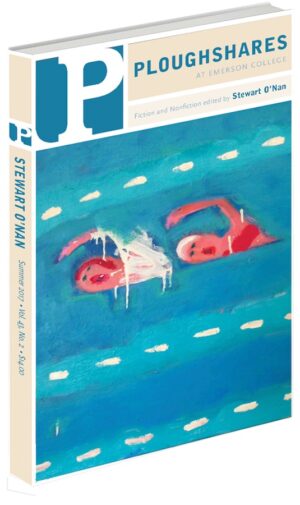Introduction
What are these stories and why are they here? As this issue’s guest editor, I suppose it’s part of my job to justify their existence, though, as with my own work, I’m tempted to say just read them. No disclaimers or praise from me will change your appreciation of them. Their charms should be self-evident, and, having read Ploughshares for nearly forty years now, I trust its readers don’t need any handholding.
But I can say, generally, why I chose them. This is not a survey, it’s more of a Rorschach blot. If, as a writer, all I have is my curiosity and sensibility, that’s true of me as a reader too. My first loves were the comics, Peanuts in particular. From there I moved on to horror comics and sci-fi and pulpy adventure tales of World War II (Low Level Raid, Sink the Bismarck!), and in some ways those early tastes and influences still obtain. I want my heroes to be as conflicted and realistic as Charlie Brown, and stories to have both a sense of consequence and a strangeness or surprise that gives them a vertiginous lift. Later loves like Chekhov and Woolf and John Edgar Wideman and Alice Munro thrilled me with their ability to convey the complications of everyday life without melodrama. Like early Ploughshares contributor Tim O’Brien, I want to feel moral confusion, because nothing in this world is simple. As a writer reading, I also admire the precision and audacity of an author’s language and use of form. Do it differently or better, or don’t do it at all.
Is it interesting?
Is it well done?
Is it True?
These are the three questions I ask of any fiction, whether it’s next up on the slush pile or has won the Pulitzer Prize. The secret is that, for most editors’ purposes, all a story has to be is interesting. If you lose the reader’s interest, no one’s going to stick around to admire how well it’s done, or how True it is.
So, interest first and foremost. Of course, what’s interesting to me may not be interesting to you. While heavily plotted potboilers may be fun, soon enough they seem obvious and silly. Some readers crave novelty, the exotic or bizarre, yet nothing grows stale quicker than a studied quirkiness. We need to care about what the characters care about. John Gardner says that if a character is worthy of and capable of love, the reader will follow him or her (or it) anywhere. I’d agree, with the caveat that the author has to be selective and include only what impinges on the character’s true desires (whether the character knows them or not). Most conventional stories proceed by characters’ closely held expectations bumping into reality, creating complications, new expectations, and new efforts. It’s these efforts we follow, knowing they may not pay off, though by the end we expect, like the characters, to reach some new balance or understanding—a change of fortune, a change of heart.
“Well done” is another slippery criterion, always in danger of being applied to either errorless or highly stylized work, a smooth or bejeweled surface that serves to disguise or distract from a lack of depth. For me, a well-done story is one in which every turn is smartly chosen, every effect and element considered and necessary. This could take the form of the impossibly complex made to look effortless, or the simple blown ridiculously out of proportion for comic effect. In a well-done story, the author’s choice of point of view, structure, and diction go beyond mere cleverness and combine to convey the characters’ emotional world in the most powerful way possible.
Truth about human nature, while being the ultimate reward of the very best writing (I’m looking at you, Shakespeare), may be the hardest to explain, but as readers, we judge the Truth of every story reflexively. Who feels it knows it, as Marley says. Most fiction out there isn’t True, and isn’t trying to be. It’s just a murder mystery to read on a plane, or a police procedural to fill a slot in primetime, a copy of a copy of a copy. And that’s fine. Even for my purposes here, the idea’s a bit highfalutin (it’s hard enough finding stuff that’s interesting), but I’d be lying if I didn’t let you know it’s in play every time I read or watch anything.
Is it interesting?
Is it well done?
Is it True?
Half of the stories in this issue are here because I’ve found the past work of their authors to consistently be all three. I solicited pieces from some of my favorite writers, just trusting they’d come through, and they did. My deepest thanks to everyone who answered the call.
The rest I selected from a stack of manuscripts vetted by Ploughshares’ editorial staff. Those picks were harder, because there wasn’t room for them all. The standouts were easy, the ones I was most excited about, but having been a judge for a fair number of prizes and grants over the years, I dreaded making the final cuts—rejecting, for lack of space, work every bit as good as what we would eventually publish. If I’d been in a different state of mind last summer, when the frantic run-up to the election was inescapable and I was writing a quiet novel about an old man whose world was vanishing, is it possible I would have chosen differently? I like to think not, that my standards are, if not infallible (ha!), at least dependable. But I may be wrong. With all of my prejudices and predispositions, with Hillary Clinton and Donald Trump’s crazy debates still lingering in the air and my head filled with the inchoate, half-built universe of my retired hero’s whole life, I chose what seemed the freshest and best to me, the most interesting, the most well done, the Truest. I hope you like them.

